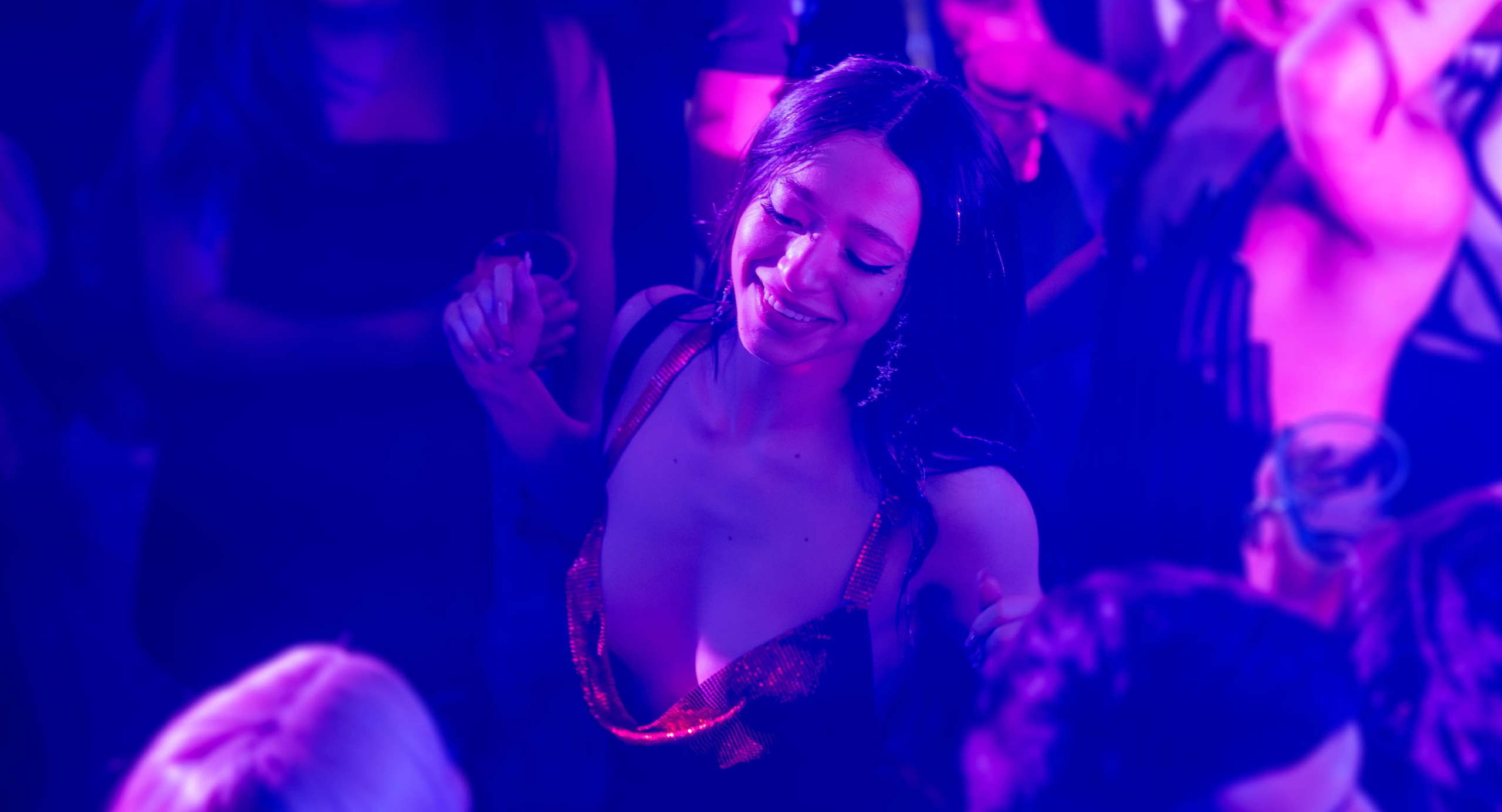Anora – Film Review
Published December 18, 2024

Sean Baker returns to the director’s chair with Anora, a comedy-drama that delves into the clash of cultures, socioeconomic divides, and human frailty with his trademark rawness and empathy. Powered by Mikey Madison’s stellar lead performance, the film tackles its ambitious themes with a mix of humor, poignancy, and biting social commentary, though its sprawling narrative occasionally falters under the weight of its complexities.
Set in the vibrant yet insular Russian-American community of Brighton Beach, Anora opens a window into a milieu rarely explored on screen. Baker’s keen observational eye captures the texture of the neighborhood with authenticity, immersing the viewer in a world of garish nightclubs, seedy strip joints, and gilded mansions that symbolize the contradictions of Ani and Vanya’s intertwined lives.
Mikey Madison shines as Ani, a sharp and resilient young woman navigating life as a stripper. Madison imbues Ani with a mix of vulnerability and steeliness, anchoring the film’s emotional core. Opposite her, Mark Eydelshteyn portrays Vanya, the overgrown man-child whose privileged upbringing clashes starkly with Ani’s grit. Eydelshteyn effectively balances Vanya’s charm and immaturity, making his character frustrating yet occasionally endearing.
At its heart, Anora is a relationship drama that probes the tension between love and transaction. The relationship between Ani and Vanya is riddled with contradictions: it begins as a business arrangement but morphs into something more ambiguous. Is Ani genuinely drawn to Vanya, or is she seduced by the promise of a better life? Does Vanya love Ani, or does he see her as a means to rebel against his family? Baker refuses to provide easy answers, instead presenting the couple’s dynamic with a messy honesty that feels refreshingly real.
The film’s comedic beats often emerge from the absurdity of their mismatched union, such as a lavish Vegas wedding that is both romantic and farcical. Yet Baker never lets the humor undercut the emotional stakes, grounding even the most outlandish scenarios in Ani’s struggle for agency and dignity.
The Zakharov family serves as an incisive commentary on the corrupting influence of wealth and privilege. Yura Borisov’s portrayal of Igor, Vanya’s reluctant henchman, is particularly compelling; his quiet disdain for his employers and subtle moral conflict provide a counterpoint to the Zakharovs’ ruthlessness. Meanwhile, Karren Karagulian’s Toros brings a mix of menace and world-weary pragmatism, illustrating the moral compromises required to survive in this world.
Aleksei Serebryakov and the rest of the supporting cast round out the ensemble with sharp performances, though Galina’s one-dimensional villainy feels like a missed opportunity to explore the nuances of maternal power and control.
Baker’s direction and editing shine in Anora, blending his signature cinéma vérité style with striking visual contrasts. The gritty streets of Brighton Beach juxtapose sharply with the gaudy interiors of the Zakharov mansion, underscoring the cultural and economic chasm between Ani and Vanya. Baker’s use of natural light and handheld camerawork heightens the film’s intimacy, drawing the viewer into Ani’s perspective.
While the film leans heavily on comedy in its first half, the second half takes a darker turn as Ani confronts the limits of her newfound independence. The narrative becomes a meditation on resilience and survival, as Ani grapples with the fallout of her impulsive decisions. Her journey is less about finding a fairy-tale romance and more about reclaiming her agency in a world determined to strip her of it.
The final act is particularly striking, as it subverts audience expectations in ways that feel both heartbreaking and cathartic. Baker’s refusal to tie up the story with a neat resolution is a testament to his commitment to realism, though some viewers may find the ending unsatisfying.
While Anora is ambitious in its scope and themes, it occasionally stumbles in execution. The film’s pacing is uneven, with certain subplots—such as Ani’s conflict with Vanya’s family—feeling underdeveloped. Additionally, the tonal shifts between comedy and drama are not always seamless, which can detract from the emotional impact of key moments.
The screenplay also struggles with juggling its ensemble cast, leaving some characters, like Vache Tovmasyan’s Garnick, feeling underutilized. These shortcomings do not diminish the film’s overall impact, but they prevent it from reaching the heights of Baker’s best work.
With Anora, Sean Baker delivers a flawed yet compelling exploration of love, power, and cultural identity. Anchored by Mikey Madison’s captivating performance, the film is an engrossing portrait of two individuals caught between their desires and the constraints of their circumstances.
While its ambition sometimes exceeds its grasp, Anora is a testament to Baker’s ability to blend humor and humanity with sharp social critique. It may not be his most polished work, but it is undeniably a thought-provoking and emotionally resonant film that lingers long after the credits roll.
